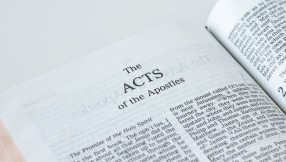
Plans for a 'new deal' between clergy and the wider Church of England have taken a step forward after a panel was established to begin drafting the agreement aimed at helping with clergy stress and well-being.
The Church of England's Appointments Committee has set up a group, made up of members of General Synod, both lay and ordained, alongside others with expertise in areas such as health and education, to draw up a 'Covenant for Clergy Well-being'.
The covenant, which the CofE says is based on the idea of the Military Covenant, is being produced in response to a vote in the General Synod in July of this year after a debate which heard of the impact of stress, isolation and loneliness on the lives and ministries of clergy.
During that debate, Justin Welby, the Archbishop of Canterbury, said: 'The hardest work I've ever done and the most stressful was as a parish priest – mainly because it was isolated, insatiably demanding and I was on the whole working without...close colleagues, particularly in the first few years.'
A background briefing for the debate described how the Church of England Experiences of Ministry Survey (EMS), in collaboration with Kings College, assessed clergy wellbeing in four ways: 'emotional exhaustion and depersonalisation (two measures of burnout); general physical health; and psychological detachment'.
'The EMS, reaching a nationally representative sample of ordained ministers, found that clergy, as an occupational group, appear to report higher levels of emotional exhaustion than many other professional groups,' said the briefing.
The debate heard how the Military Covenant recognises that the nation relies on the sacrificial service of those in the armed forces, and in return has a duty to support them in practical ways.
The CofE acknowledged that 'the parallels with the Church are not exact' but pointed out that 'Synod heard how a similar pattern of mutual commitment could be recognised in the Church'.
The Working Group will begin work later this month and aims to bring proposals for such a covenant back to the Synod by July 2019.
Canon Simon Butler, who led the debate on well-being in the July Synod on behalf of the House of Clergy, said: 'Such was the interest in serving on this Working Group and the strength-in-depth of the insights and skills offered to the Appointments Committee that we could have easily populated the Working Group twice over.
'This can only bode well for our work in developing a Covenant for Clergy Well-being that draws on all that the church is learning about how attending to the well-being of the clergy is vital to the mission and ministry of the whole church.'













